Fukui: A Self-Care Sanctuary Just A Train-Ride Away from Tokyo
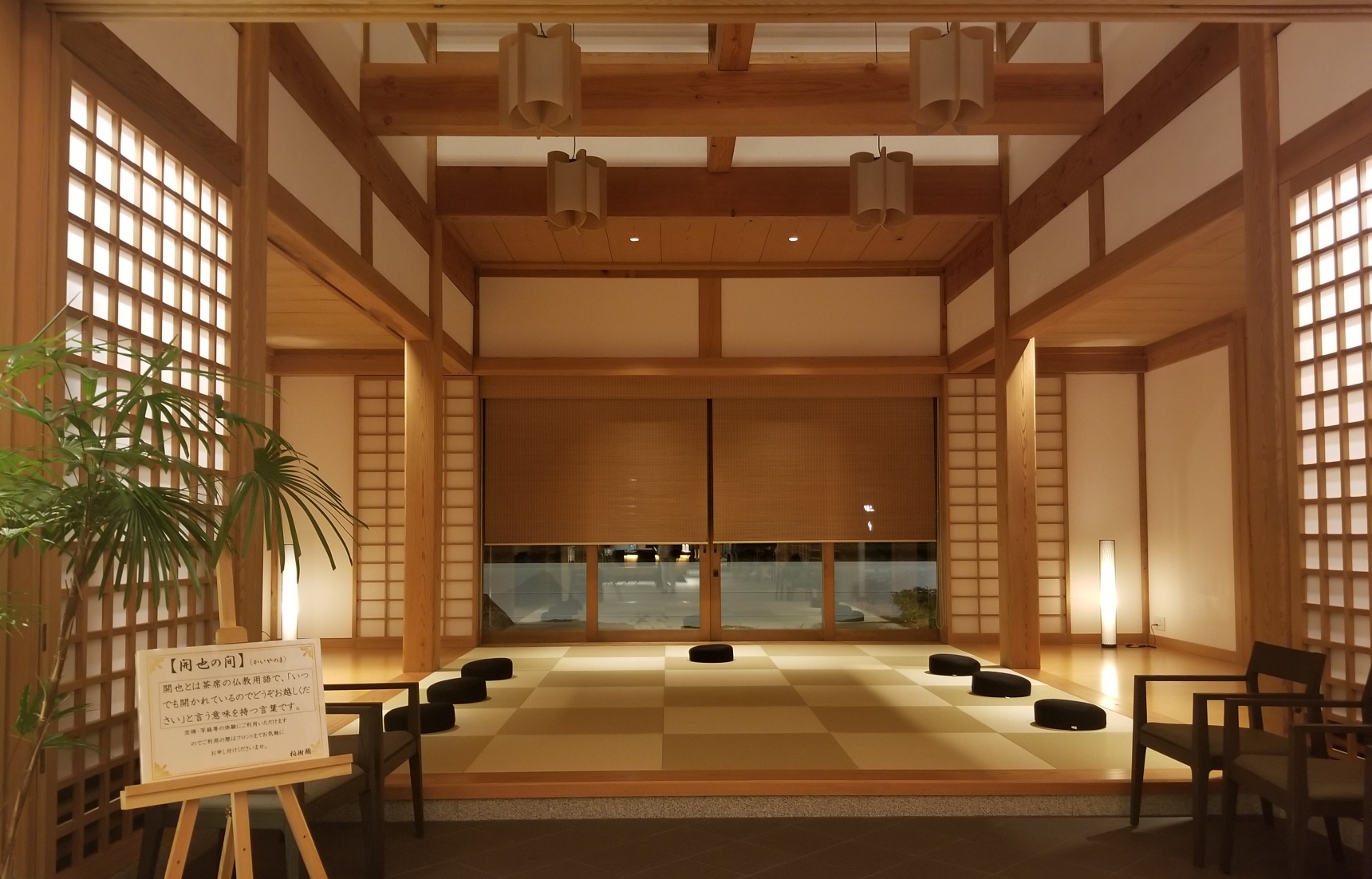
Fukui is the home of Eiheiji Temple, where Kobun Otogawa, the zen mentor of Steve Jobs, trained as a monk. Not only is it an excellent place for anyone interested in doing zazen, or the "art of thinking about nothing," but Katrina Vinluan introduces a number of other self-care opportunities that are ideal for developing a healthy mind and body.
By Katrina VinluanFinding Zen: Hakujukan Ryokan and Eiheiji Temple
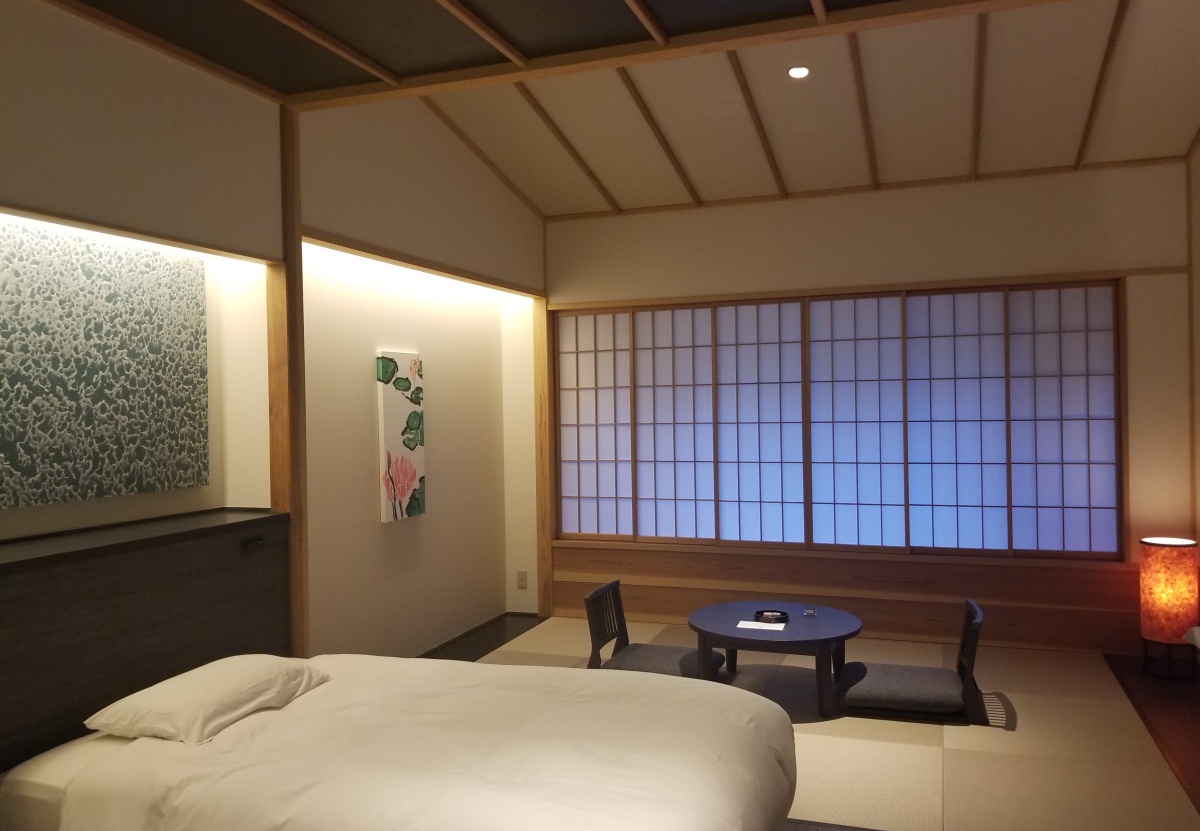
A room in Hakujukan marries modern and traditional elements in a perfect balance of Zen.
Hakujukan is the perfect place to enjoy an immersive, traditional stay at a Japanese inn. Tatami floors, wooden panels, minimalist decor, and serene surroundings—all these make this the perfect self-care retreat. Think of a luxurious way to experience "zen life." It may be clutter-free and indulgence-free compared to normal hotels, but it has just enough pampering for the discerning traveler.
As a bonus, you can enjoy the in-house onsen hot spring bath, including a mini outdoor bath surrounded by bamboo and maple trees. The onsen uses bath pails made of natural hinoki wood that emit a faint forest aroma.
Inside the serene grounds of Eiheiji Temple, where you can stay overnight and savor silence in the home of the monks.
If you want to experience the life of the monks, you can book a stay at Eiheiji Temple, where you can practice zen meditation, dine on the simple dishes, and participate in morning services.
The zazen experience is the art of single-minded sitting, permitting one's mind to not think about anything. This is a useful experience for those of us who need to regulate our attention, which is normally overloaded with information. It's a perfect antidote for anyone wedded to work and the daily grind.
Channeling Stress: Traditional Knife-making
Visitors can attend a workshop at the world-renowned blacksmith and knife company, Ryusen Hamono.
There is something cathartic about observing the laborious and meticulous traditional knife-making process—yet another form of self-care. The process alternates between pounding and heating, until a high-quality knife is formed. It takes about 10,000 pounding strokes for one knife to reach the level of quality that can bring up to ¥350,000. Chefs from around the world are fond of their sushi and paring knives made at Ryusen Hamano, which has been operating since 1901.
Amateur kitchen enthusiasts like myself can purchase long-lasting cutlery and knives that only cost around ¥20,000. A warning, though: Some type of knives require a 6-month waiting time after order placement.
Harnessing Passion: 1,500 Years of Paper-making
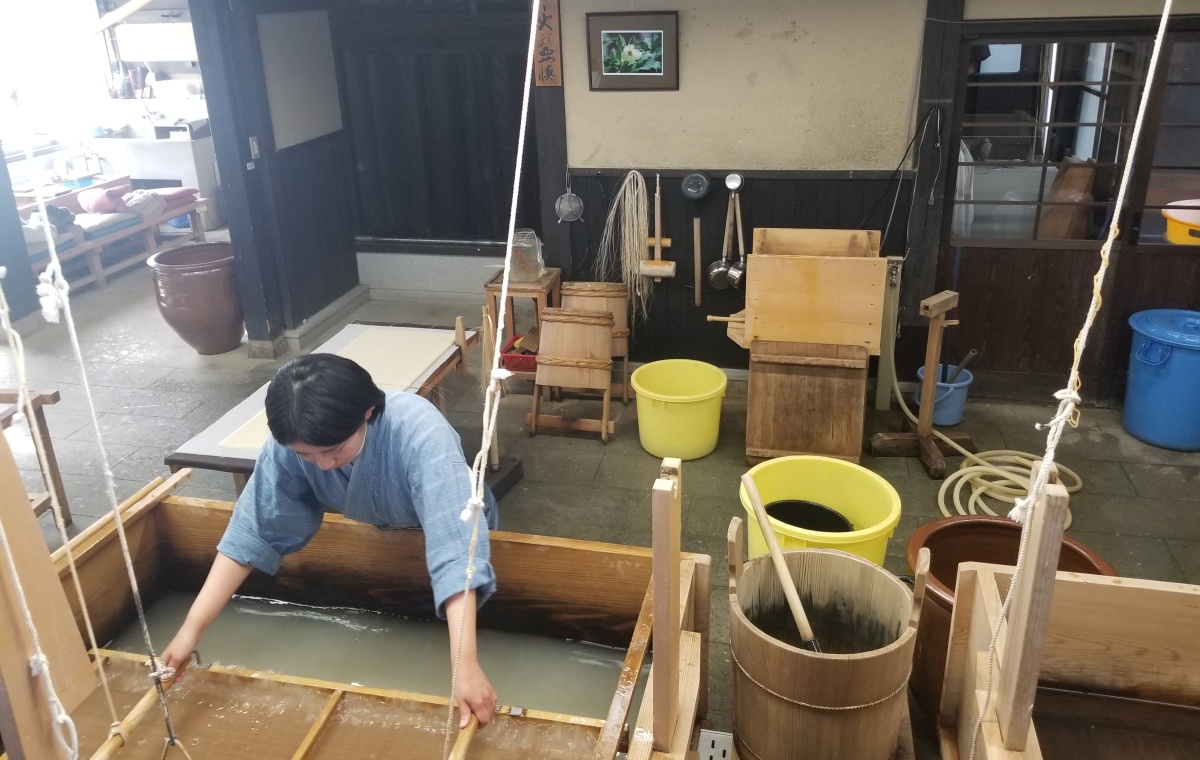
The traditional paper industry based in Echizen uses the clear water of the Okamoto River.
The town of Echizen in Fukui is ideal for craft tourism. One famous craft that originated here is the art of making paper called washi. You can go washi workshop-hopping in the town, and experience the varied techniques of each paper-making house such as the Udatsu Paper and Craft Museum and Yanase Washi.
The "Goddess of Paper" Kawakami Gozen resides here.
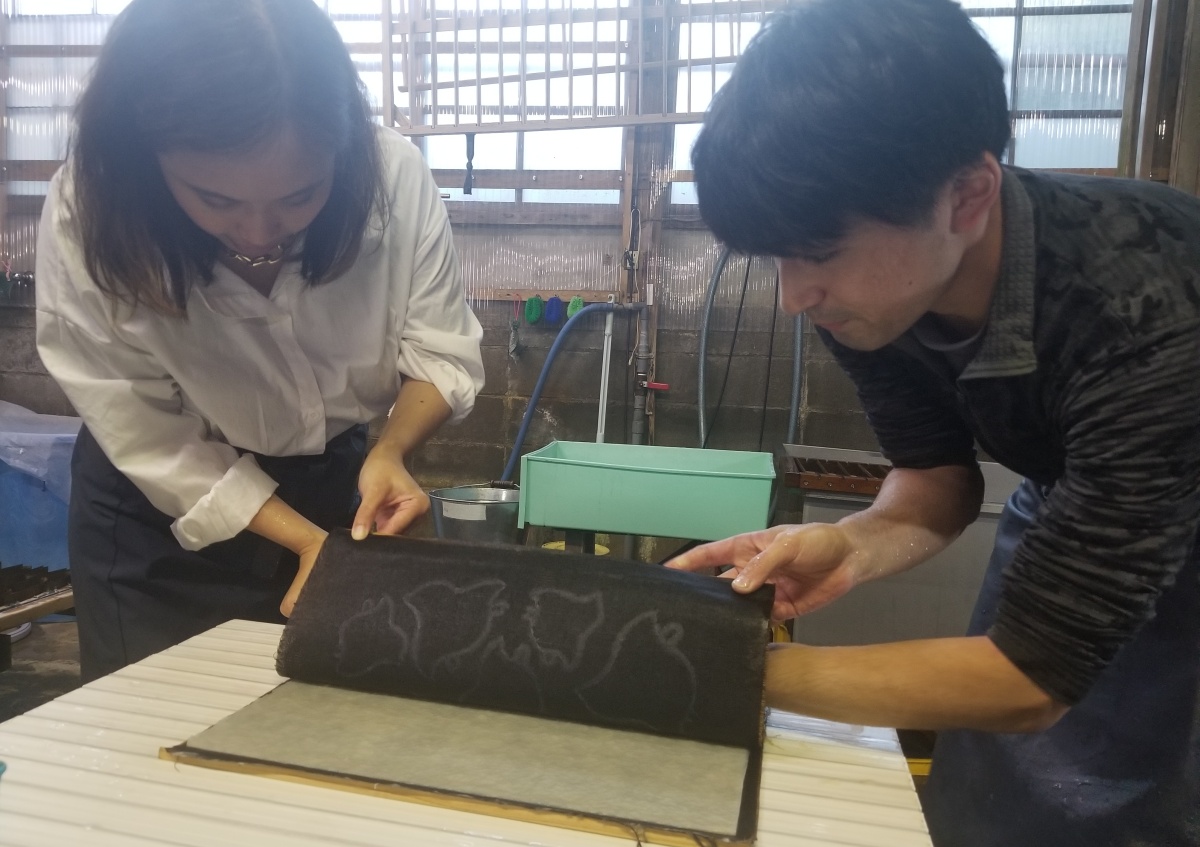
Unveiling my washi with marks of "chidori" (plover), which monks of the town say, is a symbol of overcoming challenges.
If you are like me, you will really get your hands dirty (literally!) going through each step of the entire paper-making process. I particularly enjoyed the paper pulp-pounding (to get it ready for immersing and straining in the dyed water), and paper-peeling (after smoothening the paper with a design imprint of your choice). The process demands mindfulness and concentration—the ultimate requirement for self-care and mental rest.
Indulging the Senses: Authentic Traditions and Historic Meals
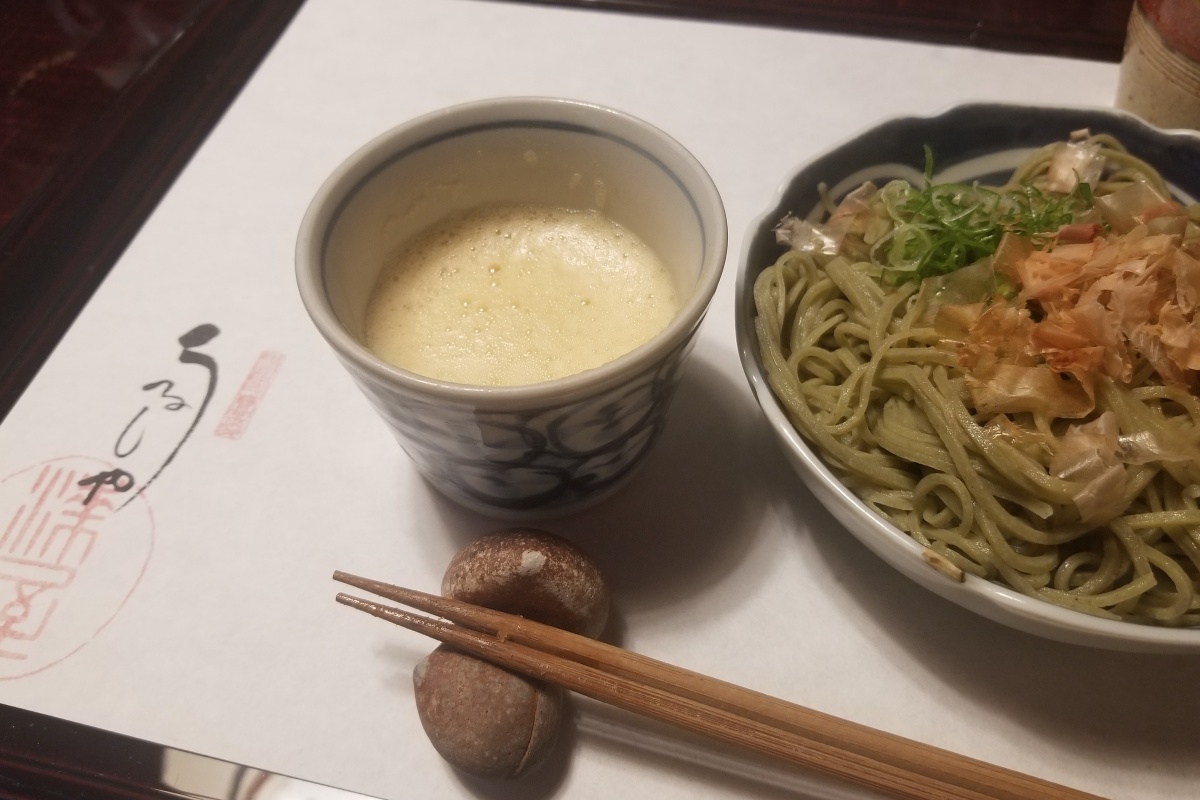
Favorite soba of the Emperor of Showa.
Urushiya Echizen is a 600-year-old traditional soba house in Fukui's Teramachi Dori, a street lined with cobbled pathways and traditional houses. The shop makes soba using whole buckwheat fruit (naturally gluten-free), but also serves kaiseki meals made of carefully-prepared tempura, seafood, and veggies.
Kaiseki meal with Fukui's flavors, inside the dining room where the Showa Emperor once enjoyed Echizen soba.
I was able to dine in the room where the Showa Emperor once ate. As the soba house was also a former headquarters for producing lacquerware, my meal was served on beautiful dishes. It was truly a feel-good moment, especially the time I spent savoring the creamy pudding at the end of my meal.
Many samurai clans once lived in Fukui's historic quarters, and many pre-war industries were started here.
A mini garden was located outside the dining room, and all the corridors and rooms of the shop were made of wood and brass. The remnants of its precious history was enough to make me stop, smile, and think good thoughts.
Bistro un's gluten-free and creamy risotto is a true comfort food.
If European cuisine is your preference, bistro un is the place to enjoy Fukui's local ingredients cooked with French-Italian recipes and techniques. The tables are set with Echizen cutlery, the town's pride and joy.
Being Mindful, Part 1: Michelin Sushi Dining
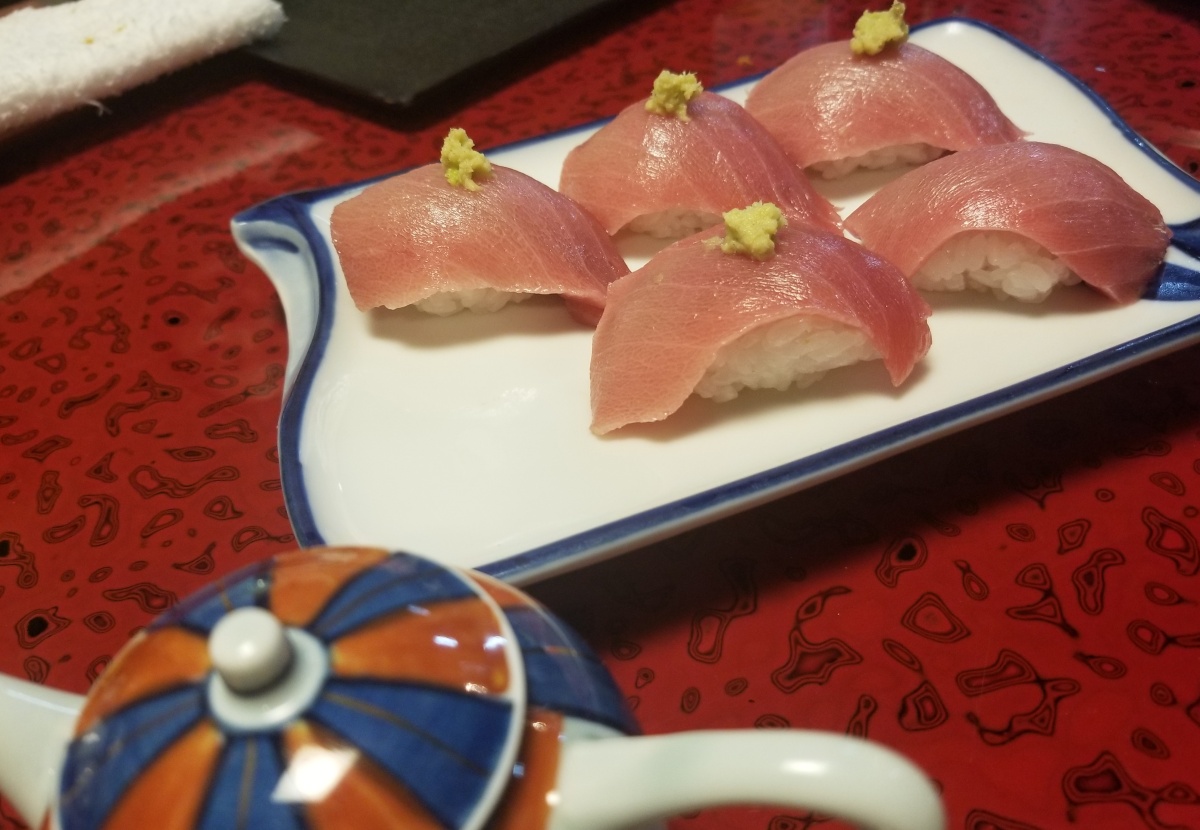
Sushi Toyo is the town's best kept secret.
Any time spent at this Michelin-star restaurant, Sushi Toyo, will easily lift your spirits. The small shop, run by a bubbly and warm family, offers quality meals paired with locally-made saké. Each dish is meticulously prepared with love, including (in season) Echizen's yellow tag crab, which rivals those of Kanazawa and Hokkaido.
Groups can also rent the entire place, and learn how to make sushi with the freshest ingredients.
Address: 1 Chome-9-20 Kokufu, Echizen, Fukui 915-0076
Phone: 0778-22-4771
Being Mindful, Part 2: Savoring Tea at Kamani Besso
At Kamani Besso, enjoy authentic tea ceremony in a dimly-lit room, where you have to enter through the small hole door, in bowed-down posture, which shows humility and a gesture of equality, where all who enter (no matter the status) become equals.
I've done my share of sado (tea ceremony) lessons, some with a master and touristy ones, but the one I attended here at Kamani Besso was truly unique and relaxing. I learned about the small (window-sized), low entry door and how entering a confined space and sharing tea is a personal communion that shows deep trust between the people in the room. (In the samurai era, an intimate meeting in a tea room was a chance to be poisoned or attacked.) Learning of in the true meaning of the tea ceremony which developed in an era of clan wars and territorial battles, led me to ponder the sense of stillness and a greater gratefulness for life.
Inside the confines of the Kamani Besso Villa are delicately designed rooms, reflecting the minimalism of Japanese zen style. The interior of warm lights, wooden features, and washi paper—elements that naturally create a zen zone—are perfect for a self-care stay. The Kamani group of restaurants has been awarded a Michelin Star, and their accommodation facilities offer a dream stay.
Starting from Scratch: Local Lacquerware and Writing Sutras
Five-star hotel lacquerware is produced in Echizen, Fukui.
Fukui is famous for its centuries-old traditions of lacquerware and Japanese tansu, the heavy wooden cabinets which can cost the equivalent of a brand new car. The town of Echizen was once a political center, so storing treasures in tansu was a way of life, and the use of lacquer on furniture and dining wares was common.
With the advent of commercial factory-production, it's been difficult for family businesses to maintain their generations-old traditions, but the workshops held at Shitsurindo Echizen Lacquerware, which has been around since 1793, is still proof of longevity and artistic craftsmanship practiced by the makers here.
Shitsurindo offers workshops and tours ranging from ¥2,000 to ¥8,000.
Shitsurindo offers classes in bowl-wiping and kintsugi (bowl-repair using lacquer). There are detailed workshops as well, which can be booked at least three weeks in advance. I am no workshop-novice (I've previously attended pottery and kintsugi classes), but this experience proved to be meditative and stress-relieving. The fact that I could take home something I had created from scratch was also very fulfilling.
Back at Hakujukan Ryokan: Lessons in Calm Calligraphy
Even if you're not a fan of kanji, copying sutras is quite cathartic.
You do not have to be a Buddhist or a zen practitioner to enjoy the tradition of shakyo, which is the slow practice of copying sutras, an activity meant to free your mind from distractions and noise. At Hakujukan, they provide a shakyo experience, letting you enjoy the serene backdrop of a Japanese room, while enjoying the spirit-soothing natural landscape outside the window.
I have a love-and-hate relationship with writing and remembering kanji characters, but this experience set me at ease and gave me a sense of satisfaction.
Hakujukan is a five-minute walk to Eiheiji, and autumn colors in the area are simply awe-inspiring.
I have now traveled to 27 out of Japan's 47 prefectures (both on budget-style and luxury-style visits), yet still found myself pleasantly surprised by this underrated town. Delectable food, reflective hands-on experiences, and calming accommodations make up my definition of self-care, and I achieved all this quite nicely in Fukui. For those who need a little more excitement, there's always adventure with the dinosaurs in Fukui.
While I particularly enjoyed the changing colors of fall during my recent trip, the unexplored areas of Fukui are equally beautiful in spring, with many places for hanami or cherry blossom viewing. Within the town, a ¥500 flat rate, go-by-pick-up taxi is available to help you explore the must-see spots. Questions about points of interest, transportation, and workshops can be answered in English by Echizen Tourism Office, which also offers tours and travel guide assistance.
While Echizen is less transportation-friendly than Kyoto, I consider it more magical and rejuvenating than the latter, especially if the goal is some peace, quiet, and fresh air. By Spring of 2024, thankfully, a direct Tokyo to Fukui Hokuriku Shinkansen will start operations, making this zen zone a perfect jaunt from Japan's major cities on Honshu island.


